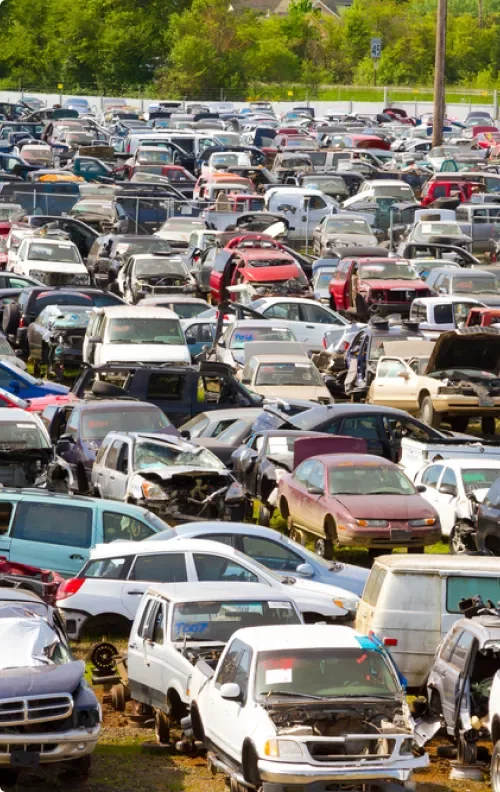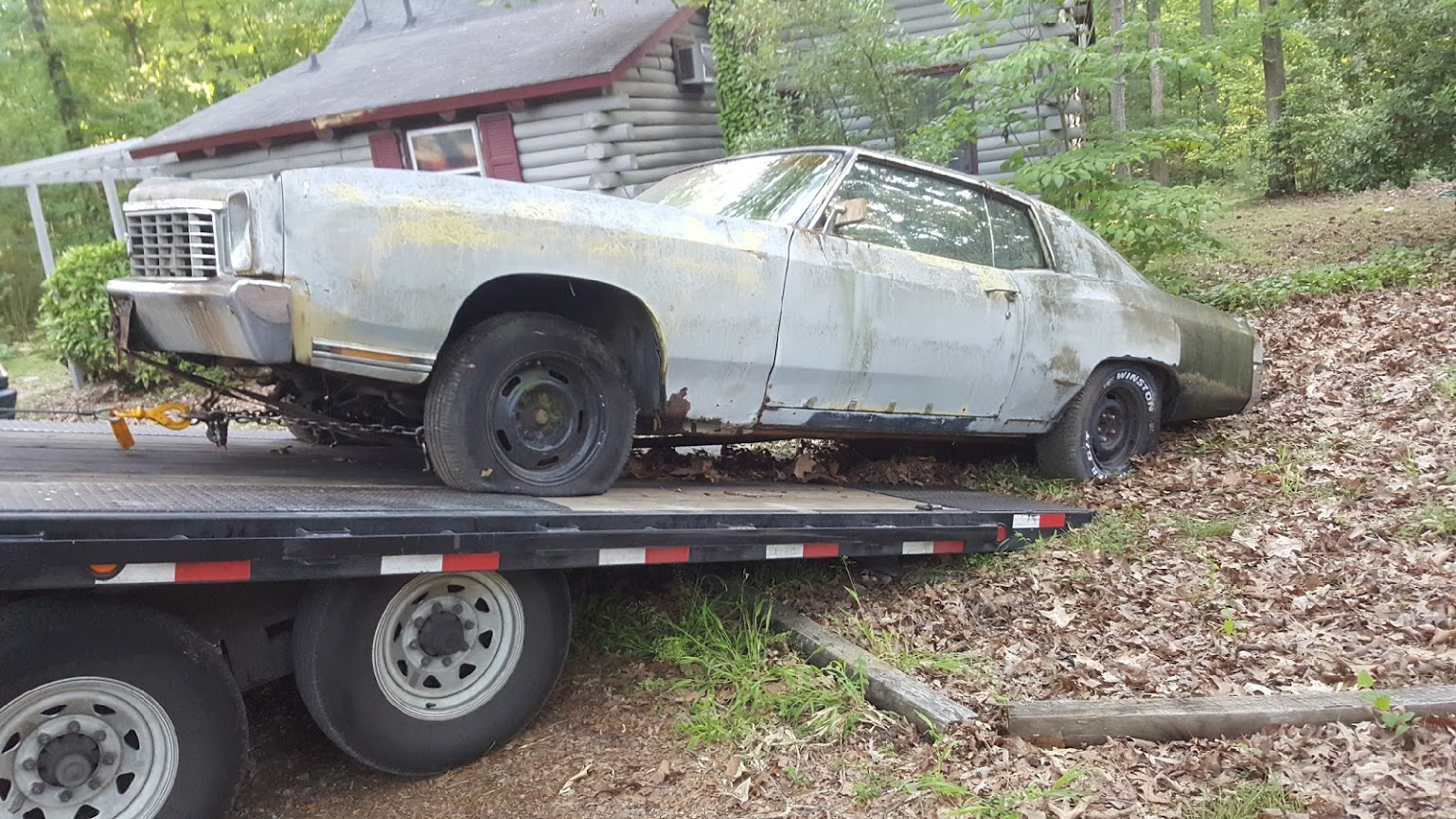We Buy Junk Cars Denver: Quick, Easy, and Cash on the Spot
We Buy Junk Cars Denver: Quick, Easy, and Cash on the Spot
Blog Article
The Ecological and economic Benefits of Recycling Scrap Autos
Reusing junk automobiles presents countless financial and environmental advantages that extend well past waste reduction. These benefits emphasize the complex value of recycling junk automobiles, yet there are additionally elements to consider when evaluating its complete effect.
Reducing Landfill Waste
Lowering landfill waste through the recycling of junk vehicles plays a crucial duty in environmental preservation. Efficient reusing processes can considerably decrease the quantity of waste that finishes up in garbage dumps when cars reach the end of their life cycle. Junk cars, if not appropriately reused, add to the expanding problem of garbage dump overcapacity, intensifying ecological destruction and potentially polluting dirt and groundwater with dangerous materials such as oil, gas, and hefty steels.

Furthermore, the recycling procedure reduces the adverse impacts of auto waste on biodiversity. Land fills are notorious for interfering with regional communities, and lowering the influx of junk autos helps preserve natural environments. Eventually, recycling junk cars and trucks is a tactical strategy that promotes lasting waste administration, straightening with broader environmental objectives.
Conserving Natural Resources
In addition to mitigating land fill overcapacity, reusing junk cars plays a considerable function in preserving natural sources. The auto sector is heavily dependent on different metals, plastics, and various other materials that require considerable mining and handling. By recycling scrap automobiles, we dramatically decrease the need for basic materials, consequently suppressing the ecological deterioration connected with mining activities. For example, recycling steel from old cars lowers the requirement for iron ore removal, which in turn reduces power intake and greenhouse gas exhausts.
Furthermore, the procedure of recycling vehicle parts such as copper, aluminum, and lead is much much less energy-intensive than creating these materials from virgin resources. This power savings equates straight into decreased nonrenewable fuel source intake and reduced carbon footprints (sell my junk car today). Additionally, by recovering and repurposing materials, we prolong the lifecycle of non-renewable sources, guaranteeing they continue to be available for future usage
In addition, reusing auto liquids like transmission, oil, and antifreeze liquid avoids hazardous materials from polluting soil and water resources. With methodical recycling initiatives, these liquids can be purified and recycled, advertising a round economic situation and more reducing the strain on natural resources. Therefore, reusing junk automobiles provides a complex method to conserving our planet's important natural possessions.
Producing Work Opportunities
The recycling of junk cars and trucks not only benefits the atmosphere yet also boosts economic growth by developing work chances. This blossoming sector provides a wide selection of employment leads, ranging from the first collection and transportation of old lorries to the elaborate processes of dismantling, sorting, and repurposing the various components.

The proliferation of reusing plants better magnifies the work market, requiring roles such as designers, that site maker drivers, and quality assurance experts to handle the advanced equipment and guarantee compliance with ecological regulations. Also management settings, such as sales, advertising and marketing, and client service, see a rise as the industry broadens.
Reducing Manufacturing Expenses
By including recycled products from scrap automobiles, makers can substantially reduce manufacturing prices. The energy needed to refine recycled products is significantly less than that needed to generate new materials from scrape.
In addition, the recycling process assists enhance the supply chain by supplying a stable influx of materials that are easily offered and usually cheaper than freshly extracted resources. These price performances Your Domain Name are specifically essential in an extremely affordable industry like automotive production, where margins can be razor-thin. Furthermore, the recycling of scrap vehicles assists reduce the unstable pricing of raw materials, allowing producers to better projection and manage their production budgets.
Supplying Inexpensive Vehicle Components
When junk cars and trucks are reused, the schedule of cost effective car components significantly enhances, benefiting both customers and service center. Recycled car components are often offered at a portion of the cost of new parts, supplying a cost-efficient option for vehicle owners and mechanics. This affordability can be critical for people that may not have the financial means to acquire brand-new components, allowing them to maintain their lorries in functional and safe problem.
Service centers additionally gain from this raised schedule of cost effective components. By sourcing recycled components, these services can lower their functional costs, which can be passed on to consumers through lower service costs. This, in turn, can bring about greater consumer fulfillment and commitment, as clients appreciate the cost savings without endangering on high quality.
Moreover, the quality of recycled components has actually improved significantly throughout the years, many thanks to developments in recycling procedures and quality assurance actions. Many recycled parts undertake strenuous testing to ensure they satisfy sector criteria, providing integrity similar to brand-new parts - junk car buyers. By offering a top notch and economically practical alternative, the recycling of junk automobiles plays a crucial duty in sustaining both the automotive repair service industry and the broader consumer market
Conclusion
Recycling junk cars presents significant financial and environmental advantages by dramatically minimizing landfill waste and conserving natural deposits. This method decreases making prices by redeeming approximately 90% of vehicle parts, thus lowering power consumption and greenhouse gas exhausts. In addition, it generates work possibilities more tips here throughout various fields and supplies affordable automobile components, bolstering the vehicle fixing industry. Overall, the recycling of junk automobiles sustains both economic development and sustainability goals.
Recycling junk vehicles provides countless financial and ecological benefits that extend well beyond waste reduction. Junk vehicles, if not appropriately recycled, add to the growing issue of landfill overcapacity, aggravating ecological deterioration and possibly infecting soil and groundwater with dangerous materials such as oil, gas, and heavy metals.
By recycling junk cars and trucks, we substantially minimize the demand for raw materials, therefore curbing the ecological destruction linked with mining tasks.When junk vehicles are reused, the schedule of economical automobile parts substantially boosts, benefiting both consumers and repair stores.Reusing scrap cars provides substantial economic and ecological benefits by dramatically decreasing garbage dump waste and conserving all-natural resources.
Report this page